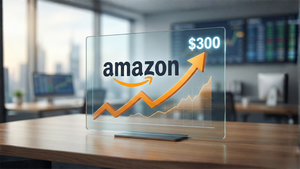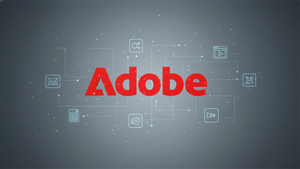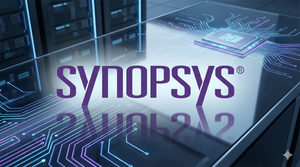Leaders recognize technology as a supply chain performance enabler, with 61% investing between $1–$10 million across the next five years to build more resilient, efficient supply chains
Blue Yonder, the world leader in end-to-end digital supply chain transformation, today released the results of its inaugural “Supply Chain Compass” report highlighting nearly 700 global supply chain leaders’ key strategic priorities: implementing new technology (51%), improving efficiency and productivity (40%) and building more resilient supply chains (29%). The three-part report features responses from senior supply chain leaders in North America and Europe who work in manufacturing, retail and logistics.
Achieving each strategic priority over the next three years will require specific actions, and respondents identified better demand planning (46%) and quickly obtaining and analyzing data on performance (46%) as two of the top actions they believe are essential to success. This was followed by investing in tracking and visibility solutions (45%), digital software transformation and innovation (41%) and managing supply chain costs (33%). In the current macroeconomic environment characterized by volatility and rapid change, focusing efforts on each of these actions will be critical. These priorities not only speak to immediate operational challenges but also position organizations to adapt swiftly to external pressures, ensuring resilience and competitiveness in an unpredictable landscape.
“A consistent theme among surveyed leaders was the adoption of innovative solutions that deliver true end-to-end visibility across the supply network and enable a more connected, intelligence-driven approach to demand and supply planning,” said Andrea Morgan-Vandome, chief innovation officer, Blue Yonder. “In the face of ongoing economic uncertainty, geopolitical instability, and inflationary pressures, supply chain leaders are prioritizing technologies that enhance speed and precision. The report highlights that, beyond mitigating risk, decision-makers are increasingly exploring next-generation AI agents to advance sustainability goals and build supply chains that are not only faster but also more efficient.”
Implementing New Technology is Foundational to the Future of the Supply Chain
Many leaders across industries are actively witnessing the transformative power that new technology can bring, with 74% agreeing that AI is already changing the way their business operates. A staggering 82% of leaders agree that outdated technology will hinder their supply chain’s potential, and 51% state that implementing new technology is a top priority in the next three years.
Supply chain leaders are willing to invest in technology, with 89% of decision-makers dedicating a specific budget to new supply chain technologies. For 61% of respondents, the budget for supply chain technology is between $1–$10 million across the next five years. With technology being a key enabler of supply chain performance, decision makers recognize they will need to prioritize new solutions and tools to respond to market challenges and growth opportunities.
Barriers to AI Adoption
Generative AI is currently under-implemented compared to traditional AI, which is largely used for prediction and automation. The majority of respondents (83%) are using (or are implementing) AI-powered automation, and 78% said the same of machine learning and predictive AI. By contrast, just 36% are using or implementing generative AI.
However, there is a clear pathway of opportunity being explored. Generative AI is becoming more important to enhance reliability and address sustainability goals, with one in four companies indicating they are implementing the technology. Only 16% said they have no plans at all for implementing generative AI-based solutions.
Understanding barriers to generative AI implementation is key for supply chain decision-makers:
- Human Impact: Of those with no plans to implement generative AI, 51% said that their organization will prioritize a people-led approach over cutting-edge technology.
- High Cost of Adoption: Organizations with an expected technology budget lower than $500,000 for the next one to five years are significantly less likely to consider implementing generative AI.
- Different Priorities: Organizations not currently using generative AI aren’t necessarily behind — they’re prioritizing other strategic initiatives, such as automating inventory management to drive efficiency.
Businesses that focus on transportation, order management and execution and fulfillment are significantly more likely to be investigating the implementation of generative AI (46%), while those in logistics (16%) are behind the adoption curve with no plans to implement.
Intersection of Technology and Sustainability
Achieving more sustainable supply chains is top of mind for today’s leaders, with “sustainable” being the number one word used to describe the future of their supply chains by respondents. This rang true for nearly two-thirds (68%) of leaders who agree there is an onus on supply chain operators to help solve problems like waste and climate change. Organizations that chose sustainability as a top three strategic priority are far more optimistic about their business performance.
Overall, leaders are initially focusing on tangible efforts to impact sustainability, but many are not yet embracing technology solutions that can provide a combination of cost savings and sustainability benefits:
- Top opportunities for sustainability in supply chains are tangible investments often bearing a cost: Sustainable packaging (37%), reducing waste across manufacturing (30%), recycling (28%), renewable energy resources/green fuels (28%) and lower emissions from warehouses and facilities (27%).
- Fewer leaders have embraced technology-related sustainability opportunities: Data analytics for emissions tracking (22%), connected networks for efficient shipping (17%), reducing waste from expiration (13%) and better returns processing (12%).
- Nevertheless, there is a recognized link between sustainability, technology, and efficiency among one cohort: 26% believe that forecasting technology can improve efficiency and, in turn, sustainability efforts.
There is immense opportunity at the intersection of technology and sustainability. Respondents who named sustainability as a top three strategic priority are on the leading edge of technology and AI adoption: 94% say end-to-end data connectivity is fundamental to the success of their business (vs. 85% total), 80% say AI is already changing how they operate (vs. 74% total) and 61% say they are currently investigating generative AI.
"This study highlights that companies who have established sustainability as a top priority rate their overall supply chain performance more optimistically,” said Saskia van Gendt, chief sustainability officer, Blue Yonder. “The intersection of technology and sustainability presents a promising opportunity. Leaders who prioritize sustainability are leveraging advanced technologies such as AI and data connectivity to enhance efficiencies and reduce environmental impact. By embracing these innovations, we can transform our supply chains into powerful engines of sustainable growth."
Additional Resources:
- Read the first of the three-part “Supply Chain Compass” report here
Methodology
The Blue Yonder “Supply Chain Compass” report was fielded by a third-party provider in January 2025. Blue Yonder spoke with nearly 700 senior supply chain leaders across Europe and North America operating in a range of industries within manufacturing, retail and logistics. This report gives detailed insight into the state of the supply chain, what leaders’ priorities are, and their views on sustainability, AI and the future of the industry.
About Blue Yonder
Blue Yonder is the world leader in end-to-end digital supply chain transformation. With a unified, AI-driven platform and multi-tier network, Blue Yonder empowers businesses to operate sustainably, scale profitably, and delight their customers — all at machine speed. A pioneer in applying AI solutions to the most complicated supply chain challenges, Blue Yonder’s modern innovations and unmatched industry expertise help more than 3,000 retailers, manufacturers, and logistics service providers confidently navigate supply chain complexity and disruption. blueyonder.com
“Blue Yonder” is a trademark or registered trademark of Blue Yonder Group, Inc. Any trade, product or service name referenced in this document using the name “Blue Yonder” is a trademark and/or property of Blue Yonder Group, Inc. All other company and product names may be trademarks, registered trademarks or service marks of the companies with which they are associated.
View source version on businesswire.com: https://www.businesswire.com/news/home/20250603890199/en/
“In the face of ongoing economic uncertainty, geopolitical instability, and inflationary pressures, supply chain leaders are prioritizing technologies that enhance speed and precision," said Andrea Morgan-Vandome, chief innovation officer, Blue Yonder.
Contacts
Blue Yonder Corporate Communications:
mediarelationsteam@blueyonder.com
U.S.: +1 480-308-3037
EMEA: +39 335 7849149





